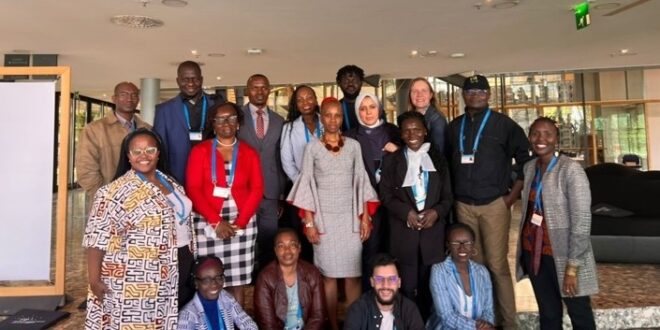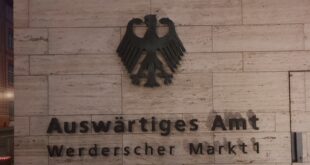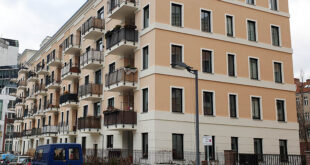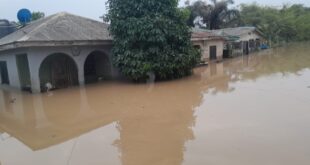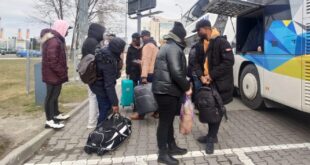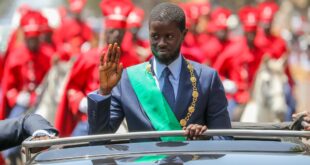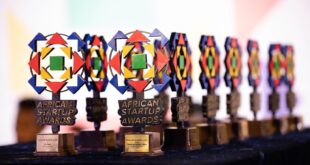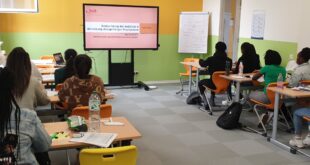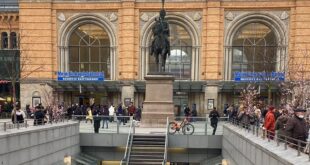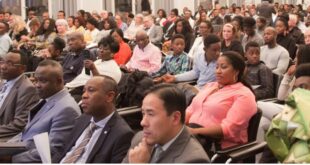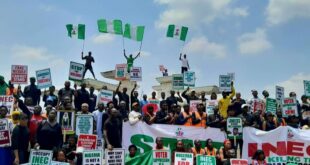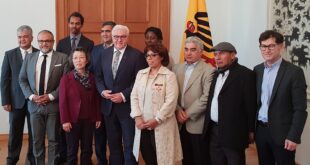The African Union (AU) Information and Communication Directorate (ICD) in close partnership with GIZ (German Corporation for International Corporation) is implementing its first AU Media Fellowship programme within the framework of the AU-German Government initiative, the “Citizen Engagement and Innovative Data Use for Africa’s Development (DataCipation)”.
The Fellowship Programme is one of the activities being undertaken by the AU in line with the decision of the 2nd African Union Specialized Technical Committee on Communication and Information Communication Technologies (STCCICT) 2017, at which the Ministers resolved to promote engagement with African journalists for their recognition of the important role and tremendous contributions towards the achievement of AU’s Agenda 2063.
The Fellowship Programme also aims at ensuring that Africa is at the forefront of defining its own narrative and promoting the continents’ development framework Agenda 2063 to African and global audiences. It is strategically designed to provide a unique platform for African journalists and content producers to enhance their capacity to reframe the African narrative and promote developmental journalism using new and emerging technologies.
Following the open invitation for the AU Media Fellowship in April 2022, over 800 applications from across Africa and the diaspora were recieved. After careful scrutiny and sellection, 15 Fellows were chosen, based on criteria of innovation and ability of their pitches to challenge harmful stereotypical narratives and shape new and balanced discourse about the continent, as the first cohort of AU Media Fellows.
The AU Media Fellows 2022 are: Aissatou Fofana (Cote D’Ivoire); Amira Sayed (Egypt) Areff Samir (South Africa); Johnson Kanamugire (Rwanda); Jeanine Fankam (Cameroun); Osei Kwame (Ghana); Yasser Machat (Tunisia); Rivonala Razafison (Madagascar); Cecelia Maundu (Kenya); Sally Nyakanyanga (Zimbabwe); Sadou Alize Mouktar (Niger); Nila Yasmin Faisal (Uganda); Severin Alega Mbele (Cameroun); Esther Namuhisa (Tanzania); Carien Du Plessis (South Africa).
In June 2022, the AU Media Fellows undertook a two-week study tour in Germany starting with a training offered by the Deutsche Welle Academy as well as attended the Global Media Forum in June in Bonn where they had the opportunity to be the first ever largest representation of African journalists from the continent at the forum and exchange views with media professionals, decision-makers and influencers in politics, education, culture, civil society, among others from across the world.
Phase 2 of the study tour will commence with a series of meetings at the African Union Head Quarters in Addis Ababa, Ethiopia, followed by visit to the the African Union Development Agency (AUDA- NEPAD) in South Africa. Throughout the programme, the Fellows will receive mentorship support from media industry experts Simon Allison – Editor in Chief of the Continent, Natasha Kimani – Africa No Filter and Tulanana Bohela, Co-Founder of Ona Stories.
Ms Leslie Richer, the African Union Director for Information and Communication said that African journalists and content creators have a key role to play in defining Africa’s narrative and how we want Africans and the world to view the continent. The AU Media Fellowship is an investment in the human capital of African journalists and storytellers to further develop their skills and help them maximise their potential to contribute to the continent’s development.
“I look forward to seeing the outcomes of this fellowship as a platform for promoting Africa’s Agenda 2063 and telling a balanced story about the realities of Africa’s development and the opportunities for promoting socio-economic solutions that are defined and driven by Africans and benefit Africans in the digital age,” she added.
On his part, Franz von Weizsaecker, Head of Programme, Citizens Engagement and Innovative Data Use for Africa Development (DataCipation) project, reiterated German development cooperation is committed to supporting the AU in improving citizen participation through digitalization.
He noted that “digital technologies advance rapidly, and with them the emergence of news, creation of knowledge and public discourse. Never before has so much information been available so fast, to so many people, practically everywhere. In order to make use of the opportunities provided by digital transformation, we need to ensure timely access to information on public-interest issues for citizens. Only informed citizens will participate in democratic decision-making. Information is a powerful instrument, and digital technologies function as amplifiers. With our support to the African Union Media Fellowship, we aim to amplify the positive potential and empower citizens.”
The African Union is a continental body consisting of the 55 member states that make up the African Continent. The AU aims at accelerating the process of integration in order to play its rightful role in the global economy while addressing multifaceted social, economic and political problems inside Africa. In order to ensure the realization of its objectives, it has been collaborating within the strategic framework of its Agenda 2063.
Kester Klomegah
 THE AFRICAN COURIER. Reporting Africa and its Diaspora! The African Courier is an international magazine published in Germany to report on Africa and the Diaspora African experience. The first issue of the bimonthly magazine appeared on the newsstands on 15 February 1998. The African Courier is a communication forum for European-African political, economic and cultural exchanges, and a voice for Africa in Europe.
THE AFRICAN COURIER. Reporting Africa and its Diaspora! The African Courier is an international magazine published in Germany to report on Africa and the Diaspora African experience. The first issue of the bimonthly magazine appeared on the newsstands on 15 February 1998. The African Courier is a communication forum for European-African political, economic and cultural exchanges, and a voice for Africa in Europe.

